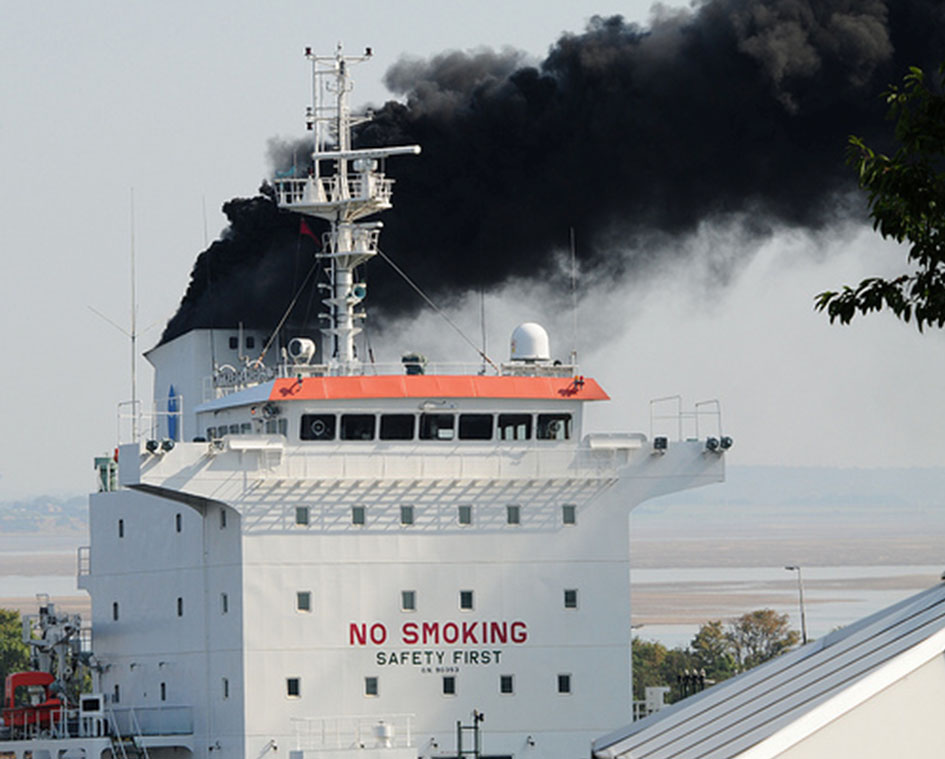
The IMO on 22 April 2016, issued a news release stating that the Marine Environment Protection Committee (MEPC 69) approved mandatory requirements for ships to record and report their fuel consumption. This requirement is intended to be the first in a three-step process regarding climate change mitigation. The requirements will be considered for adoption at MEPC 70 and could enter into effect in 2018.
The Marine Environment Protection Committee (MEPC) of the International Maritime Organization (IMO) has approved mandatory requirements for ships to record and report their fuel consumption, in a move that sends a clear and positive signal about the Organization’s continuing commitment to climate change mitigation. The mandatory data collection system is intended to be the first in a three-step process in which analysis of the data collected would provide the basis for an objective, transparent and inclusive policy debate in the MEPC. This would allow a decision to be made on whether any further measures are needed to enhance energy efficiency and address greenhouse gas emissions from international shipping. If so, proposed policy options would then be considered. Under the system, ships of 5,000 gross tonnage and above will be required to collect consumption data for each type of fuel they use, as well as other, additional, specified data including proxies for transport work. The aggregated data will be reported to the flag State after the end of each calendar year and the flag State, having determined that the data has been reported in accordance with the requirements, will issue a Statement of Compliance to the ship. Flag States will be required to subsequently transfer this data to the IMO Ship Fuel Consumption Database. IMO would be required to produce an annual report to the MEPC, summarizing the data collected. Data would be anonymized so individual ship data would not be recognized. The draft mandatory data collection requirements will be put forward for adoption at the 70th MEPC session in October this year and could enter into force in 2018. The data collection system is enshrined in draft amendments to the International Convention for the Prevention of Pollution from Ships (MARPOL), which were approved by the 69th session of the MEPC, meeting at IMO Headquarters in London this week (18 to 22 April). Following a wide-ranging discussion on future work to further address greenhouse gas emissions from ships, the Committee agreed to hold a working group at MEPC 70 for an in-depth debate. The MEPC welcomed the Paris Agreement on Climate Change and recognized it as a major achievement by the international community. It also unanimously recognized IMO’s own role in mitigating the impact of GHG emissions from international shipping and acknowledged the current efforts and the measures already introduced by IMO to enhance the energy efficiency of ships. IMO Secretary-General Kitack Lim hailed the approval of the data collection amendments as a significant contribution to the ongoing work by the international community to mitigate climate change, and welcomed the positive spirit in which Member states had approached the discussion. “It has been very encouraging to see States which had previously found it difficult to reach binding agreement on climate change measures bring the spirit of the Paris Agreement to IMO this week. The unanimous agreement to take forward a mandatory data collection system for ships’ fuel consumption is a significant step. It will provide a solid basis on which to consider, armed with information, whether further measures may be required in future to mitigate GHG emissions from shipping,” Mr Lim said. He added, “I would like to commend the Member States of IMO for once again showing their willingness to work collaboratively for the greater good. On World Earth Day, and the day the Paris Agreement is being signed by world leaders in New York, we are pleased to announce another of IMO's continuing efforts to protect the world's oceans and climate.” To date, IMO is the only Organization to have adopted energy-efficiency measures that are legally binding across an entire global industry. Mandatory energy efficiency standards for new ships, and mandatory operational measures to reduce emissions from existing ships, entered into force in 2013, as amendments to MARPOL Annex VI. Thanks to those new measures, by 2025 all new ships built will be 30% more energy efficient than those built in 2013. “The work in the MEPC this week shows IMO’s strong commitment, as the global regulator of the shipping industry, to continue its work to address GHG emissions from ships engaged in international trade. IMO has a major role to play in ensuring that the positive momentum towards climate change mitigation is translated into tangible and lasting improvements in people’s lives,” Mr Lim said. |
















